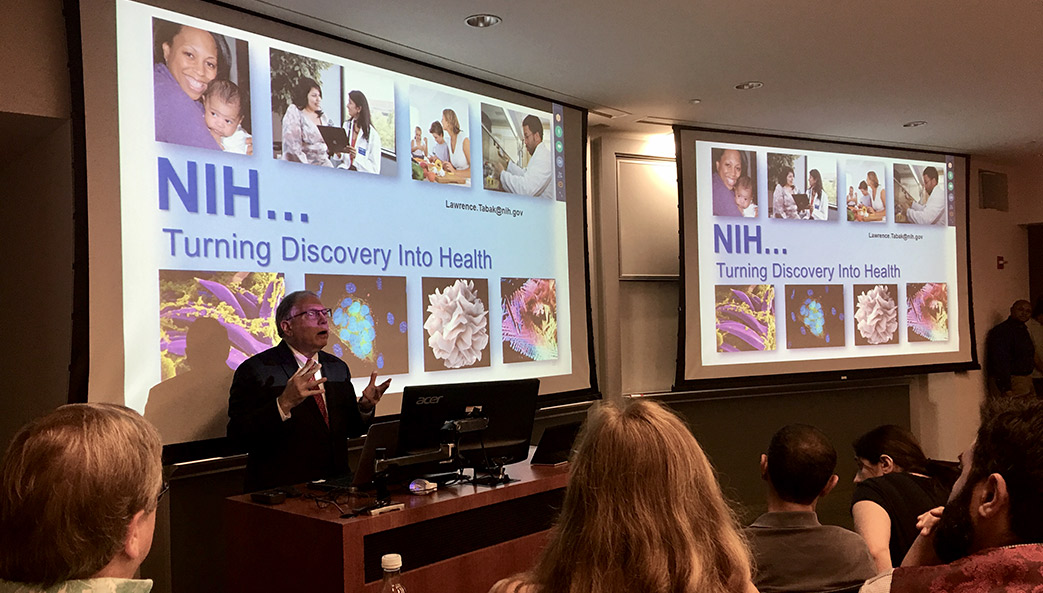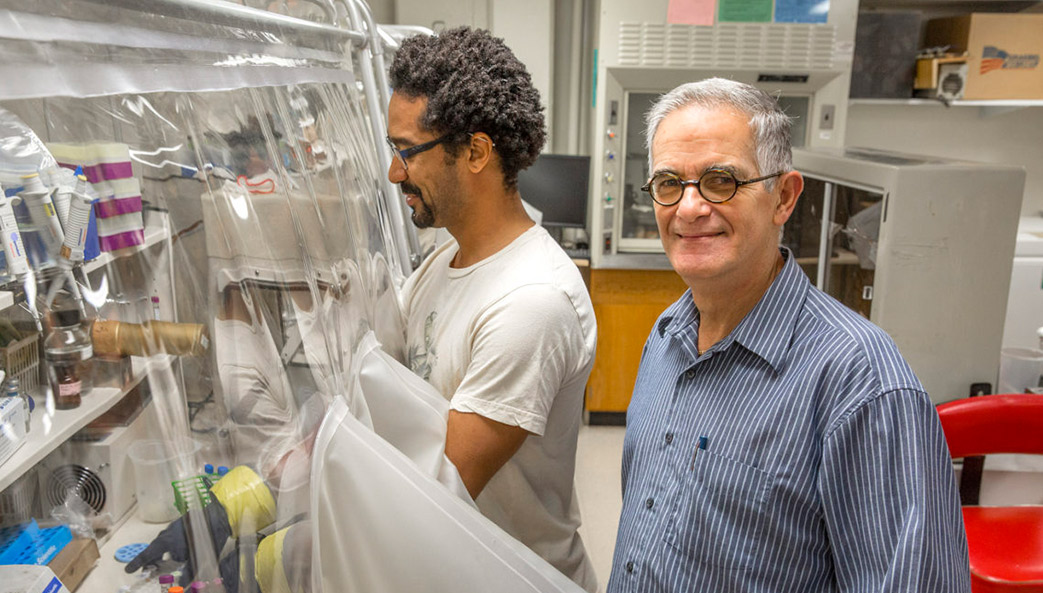The importance of basic research should not be forgotten, according to Larry Tabak, principal deputy director at the National Institutes of Health.
“We sometimes overlook that in our quest for the next cure,” he said. “We sometimes forget that that next cure came from work that was probably done 10, 20, 30, 40 or more years ago.”

Visiting campus Sept. 21, Tabak spoke to a standing-room-only crowd of more than 100 faculty and students, giving the audience an insider’s view of NIH. He touched on a number of topics, including funding, changes driven by technology and issues affecting the practice of science.
Currently the NIH has a $37 billion budget, and a proposed spending bill would add another $11 billion.
“We have this extraordinary moment in time where the only thing that the Congress seems to agree on is their support for NIH,” Tabak said.
Eighty-nine percent of the agency’s budget goes to universities for research and research training, where discoveries stemming from basic research—like the gene editing tool CRISPR-Cas9—can be revolutionary.
When Tabak was trained, individual cancers like colon, breast and lung were approached differently. Now, access to molecular signatures reveals that sometimes a colonic cancer is more like ovarian cancer than other colonic cancers.
“It really is about the individual cancer,” he said.
And genome sequencing, with pricing and turnaround time driven down by technology, allows physicians to plan treatments based on a cancer’s molecular signature. NIH will take this idea one step further by the end of the year, beginning human trials in which patients’ diseased cells will be extracted, corrected with gene editing and reinserted.
Tabak also shared concerns about issues essential to maintaining the health and viability of the research enterprise. He emphasized the importance of rigor and reproducibility, concepts that are sometimes compromised by reliance on small sample sizes, a lack of randomization and cell lines that are contaminated or misidentified.
“People think of this in a linear way—basic research begets translational begets cures,” he said. “In fact, looking at patients who are undergoing curative therapy very often gives you the next basic science question. It’s a circle.”






